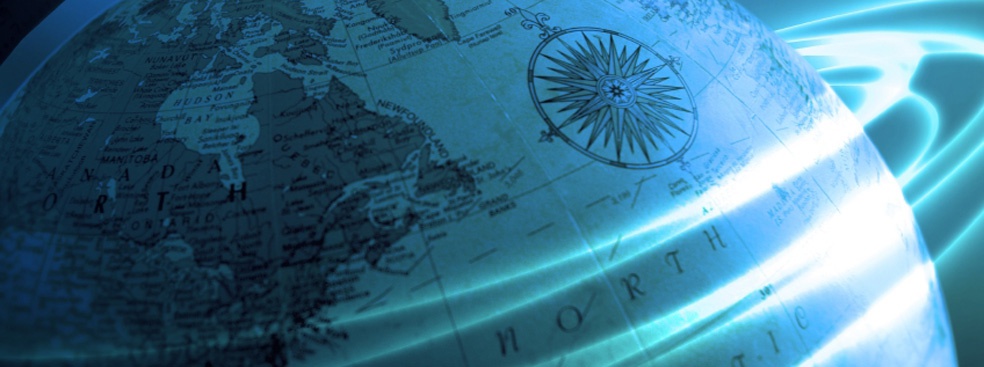With Arijit Chatterjee and Marie-Laure Djelic
In the second half of the 20th century, globalization seamed to shape a new world in which differences were obliterated. A world that some argued had been made “flat”. However the economic and financial crises of the 21st century, among other factors, have led to a resurgence of Geography. Indeed, ESSEC Professors Marie-Laure Djelic, Professor of Management and head of the Centre for Capitalism, Globalization and Governance, and Arijit Chatterjee, Associate Professor of Management at the ESSEC Asia Pacific Campus, argue that today, frontiers and international differences are more important than ever. To further explore the ways in which geography shapes and is shaped by globalization they have organized a unique academic conference – Globalization and the Return of Geography – set to take place on the 21st and 22nd of February in Singapore.
ESSEC Knowledge spoke with both professors Chatterjee and Djelic to discuss the resurgence of Geography and the objective of the conference.
ESSEC Knowledge – Why did history and geography become less relevant for globalization?
Marie-Laure Djelic – As “globalization” has developed, as a process and as a discourse, it has tended to minimize both history and geography and reduce them, as it were, to the dust bins of human evolution. Portrayed as a “new” reality, entirely detached from the past and capable of erasing all kinds of frontiers, it seemed to make history and geography increasingly irrelevant. As Thomas L. Friedman strongly argued in his 2005 bestselling book, the forthcoming globalized world was “flat”.
Arijit Chatterjee – Globalization has been characterized in many ways by many people. Some focused on exchange, some on standardization, some on technology, and others on movement of capital and labor, and so on. In this context, some had made the argument that we were living in a world where location was becoming increasingly irrelevant. Individuals and groups of individuals could compete with each other from wherever they were. The importance of geography is not going to diminish anytime soon. The “death of distance” hypothesis has now been largely discredited.
EK – Why is it important today to take a closer look at geographic question?
Marie-Laure Djelic – The rosy utopia of a brave new globalized world has been effectively put to bed by the financial and economic crises since 2008. Many of the mechanisms currently at work within the intense financial crisis and the looming economic depression have re-awakened old, and generally dark, social and political scepters that some of us had thought were buried forever. History matters again and the management of contemporary risks and challenges calls for an in-depth exploration of what history can teach us. Even more striking, may be, is the return of Geography. Our world is decidedly not flat and, if anything, it is becoming bumpier every day.
Arijit Chatterjee – To get a grasp of the current scenario, it is important to understand two kinds of inequalities. First, international income inequality, or between-country inequality, has been on a downward trend for the last thirty years. The average citizen of a poor country is still significantly poorer than the average citizen of a rich country, but the gap has reduced. This trend has been driven largely by growth in China and other newly industrializing countries. Results are mixed for within-country inequalities. Many South American countries and several central European countries have been able to reduce inequality within. However, inequality within most of the OECD countries has been on the increase. Inequality is also on the rise in China and India. The world is full of crests and troughs both within and across nations.
EK – How has the division between developed and developing nations put geographic questions back in the spotlight?
Marie-Laure Djelic – An important “geographical” consequence of globalization for the rich West has been the de-localization of a big share of industrial production to low wage countries. This was all fine in times when wealth creation did not seem to depend upon industrial production at all - but rather on the service sector and more particularly on financial engineering. Now that this has turned out to be a mirage, the geographical de-localization of our industries turns out to be extremely painful. It might in fact be carrying the seeds of profound social and political dislocations for the coming years.
Arijit Chatterjee – In the mid-nineteenth century, when Marx and Engels said “workers of the world unite,” the statement made a lot of sense because there weren’t large differences in wages between the workers of the developed world and the workers of the developing world. Between then and now, industrial capitalism has helped the workers in the developed world secure their rights in fair measure, However, workers in countries which did not benefit from industrialization have remained exploited and marginalized. Today, with the slow rise of China and India, developed economies are facing more and more international competition. Marx and Engels’s original slogan has been changed to “workers of the western world unite.” This puts location before class, and the geography of the migrant labor before the proletariat. In sum, there is a sense of optimism in catch-up economies in Asia and elsewhere, whereas in many developed economies there is a sense of gloom and despair.
EK – Are there other important factors?
Marie-Laure Djelic – Climate change and its impact have brought geography back into the spotlight. Regardless of its causes and origins, whether they be mostly human or a mixture of human action and broad climatic trends, climate change is already having a profound impact around the world. We see this every day in the news. Climate change has effectively brought geography back with a vengeance as we are forced to deal with climatic risk on an unprecedented scale with dire human, economic and social consequences: death, destruction, necessary relocation and job losses, never mind the huge financial implications.
Arijit Chatterjee – Geography is also back in the realm of ideas in search of authentic knowledge, a clearer articulation of modernity, circulatory and linked histories, and attention to voices from below. No longer can issues that are important for rich economies be framed as issues that are important for everyone. For example, infighting in Europe cannot be called “world war” anymore, in which the largest contingents were armies made up of people from the colonies.
EK – How should geography be approached in future?
Marie-Laure Djelic – Frontiers matter - and they may matter more and more in the coming years. Globalization is a phenomenon with some reality that flows through and inscribes itself within natural and human landscapes. However, it will never be de-contextualized and will remain inscribed within, will shape and be shaped by, and be both strengthened and weakened by human geographies. We organized this conference – Globalization and the Return of Geography – because we believe it’s time to explore the ways in which globalization has impacted and continues to influence the geographies of our world. It’s also time to explore how geography encounters, translates but also reacts and resists to globalization. Geography, in other words is back as a central object to investigate but also as a tool for understanding the dynamics of our complex world. Geography needs to be understood here not only in the physical sense of natural geography but also in the more interesting sense of dense cultural and historical inscription - the evolution of geographies across the world reflects human history in positive as well as in negative terms.
Arijit Chatterjee - With increasing ease of access to information (often in the form of pictures and videos) inequality across locations is starker nowadays. As a consequence, people from all over the world have become more aware of the interdependent nature of issues. With the democratization of education and commerce, grievances and aspirations are expressed frequently and assertively in the face of persistent and rising inequalities. These voices bring the context back in, and attention to geography will help us understand both relative and absolute deprivations. Geography, then, is back in a very crude manner in all aspects of our lives. The externalities of unbridled industrialization are increasingly felt across the world in the form of resource depletion, global warming, and pollution. Yet, industrialization seems to be the only way to bring people out of staggering poverty. Not only location of economic activity, but the location of the externalities of economic activity will become key issues in the coming decades.
EK – Why is Saskia Sassen as keynote speaker an important addition to this event?
Marie-Laure Djelic – Professor Saskia Sassen is a world-famous scholar of globalization and its dynamics. She has published broadly on globalization and its multi-dimensional impact – on work, cities, social interaction, culture and political organizations. In her work, she has particularly contributed to our understanding of the geographical inscriptions of globalization intermingling. She invites us to look for the global in its localized inscriptions and not as a separate realm. In her own words, studying the global “entails not only a focus on that which is explicitly global in scale but also a focus on the multiplication of cross-border connections among various localities fed by the recurrence of certain conditions across localities.”[i]
EK – And keynote speaker Prasenjit Duara?
Arijit Chatterjee – Professor Duara is a historian of Asia and particularly China, best known for his book “Rescuing History form the Nation: Questioning Narratives of Modern China”. He has been a prolific writer on historiography, the linkage between nations and histories, and the social construction of history. In Duara’s own words, history is, “the principle means of naturalizing the nation-state as the container of, or the skin that contains, the experiences of the past (1998: 106).”[ii] Considering that the idea of the nation-state is, perhaps, the most global of institutions, history writing, and our understanding of our own past, is inevitably linked with the forces of globalization.
[i] Sassen, S. (2003). Globalization or denationalization. Review of International Political Economy, 105&), 1-22
[ii] Duara, P. (1998). Why is History Antitheoretical ? Modern China, 24(2): 105-120









